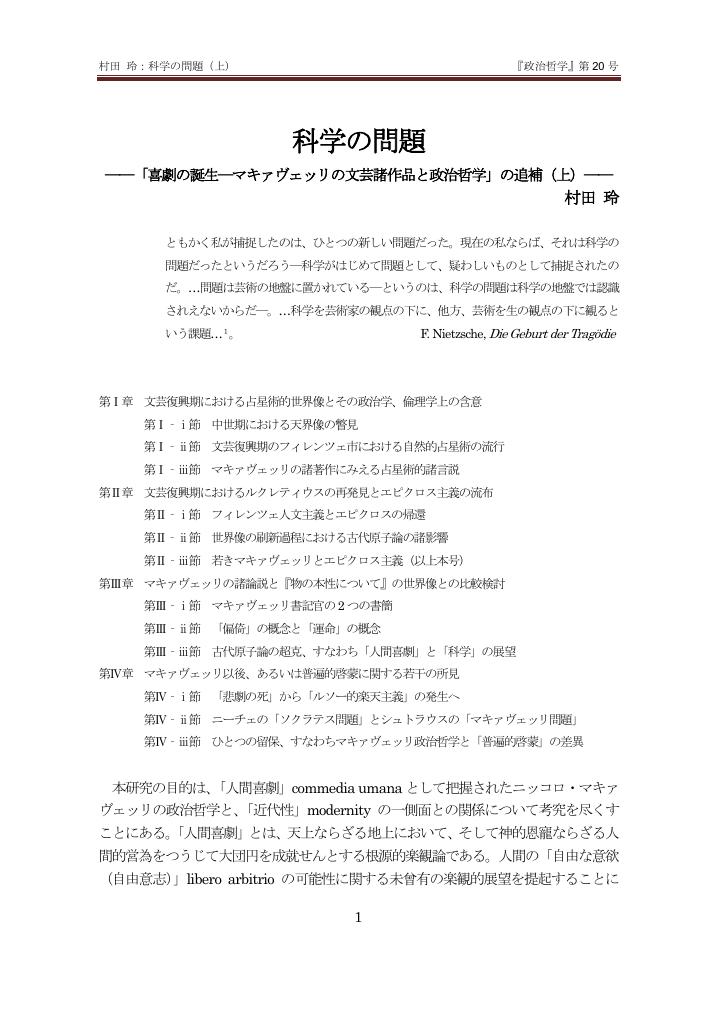2 0 0 0 OA 喜劇の誕生 -マキァヴェッリの文芸諸作品と政治哲学-
- 著者
- 村田 玲
- 巻号頁・発行日
- pp.1-226, 2014
早大学位記番号:新6988
1 0 0 0 数論問題ゼミ
- 著者
- D・P・ パラン著 村田玲音訳
- 出版者
- シュプリンガー・フェアラーク東京
- 巻号頁・発行日
- 1987
- 著者
- 村田 玲
- 出版者
- 早稻田大學政治經濟學會
- 雑誌
- 早稻田政治經濟學雑誌 (ISSN:02877007)
- 巻号頁・発行日
- vol.370, pp.130-141, 2008-02-20
1 0 0 0 OA 科学の問題 「喜劇の誕生―マキァヴェッリの文芸諸作品と政治哲学」の追補(上)
- 著者
- 村田 玲
- 出版者
- 政治哲学研究会
- 雑誌
- 政治哲学 (ISSN:24324337)
- 巻号頁・発行日
- vol.20, pp.1-35, 2016 (Released:2019-09-05)
- 参考文献数
- 17
1 0 0 0 OA マキァヴェリズムの本質
- 著者
- 村田 玲
- 出版者
- 日本政治学会
- 雑誌
- 年報政治学 (ISSN:05494192)
- 巻号頁・発行日
- vol.61, no.2, pp.2_212-2_232, 2010 (Released:2016-02-24)
Today, Machiavellism is generally regarded as a specific rule of political action stemming from the necessity and autonomy of politics. In other words, the problem of Machiavellism is raised as one related to the tragic antinomy between politics and ethics. However, such an interpretation has its roots in 19th-century German Historicism. Here, it should be noted that the term Machiavellism itself was generated and spread in the mid-16th century. The word has its genesis in the old interpretation of Machiavelli's political science, which accused Machiavelli of being a teacher of evil. The purpose of this paper is to rediscover the essence of Machiavellism in terms of its original meaning. First, the fundamental character of the present-day interpretation of Machiavellism must be articulated by analyzing German Historicism. Then, intentionally avoiding ideas that are related to German Historicism, the original meaning of Machiavellism must be grasped by analyzing the interpretation of Machiavelli's political science as raised by his first readers in the 16th century.

